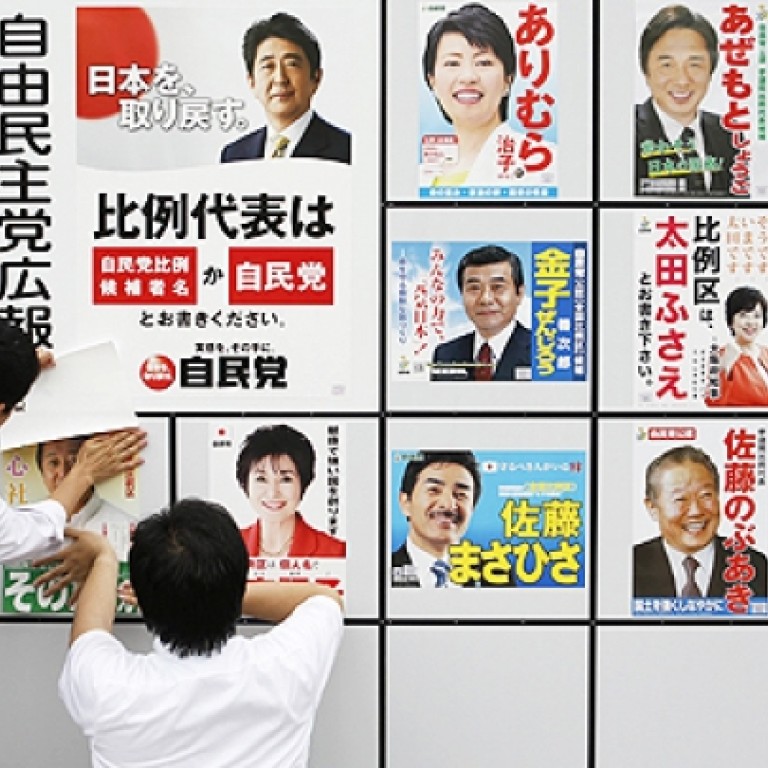
Japan gears up for decisive election
Campaigning began on Thursday in an election expected to strengthen Prime Minister Shinzo Abe’s control over parliament, ushering in the stability he needs to fix Japan’s floundering economy.

With approval ratings as high as 70 per cent, Abe is expected to romp home, bagging control of both chambers and not having to face a public vote for three years.
Supporters say he will use that political clout to force changes on cosseted and inefficient industries, like agriculture, and to cut a swathe through labour laws that businesses claim make it too difficult to hire and fire workers.
Detractors say he will abandon the economic project of his first six months and get back on his hobby horse – revising the constitution, boosting the military and re-assessing Japan’s wartime history.
“We want to ... stabilise politics and bring you the actual feeling” that the economy is picking up, Abe said in a party leaders’ debate on Wednesday.
As of 10.30am, 428 candidates were registered at the board of elections. The number of candidates will be confirmed after the 5.00pm deadline.
For the first time in Japanese politics, internet election campaigns are allowed in the upper house vote, with candidates and parties permitted to update followers on Facebook and Twitter.
The opening months of the Abe administration have seen a blizzard of economic policies, starting with vast government spending programmes and a flood of easy money from the printing presses of the central bank.
The drive – dubbed “Abenomics” – is intended to be completed with reforms that the prime minister hopes will make it easier to do business in Japan.
Details are scant at present, but Abe’s wish list includes lowered corporate taxes, special business zones in some big cities, more women in the workplace and Japan’s participation in a mooted free trade area encircling the Pacific Ocean.
Abe said on Wednesday he would also liberalise the electricity market, in a move supporters hope will free the country from the stranglehold of massive monopolistic utilities that generate and supply power.
Opponents say the premier’s focus on the economy is a ruse designed to fool voters into giving him enough power to change Japan’s hallowed pacifistic constitution.
They say with a majority in both houses, he will look to bolster the country’s already-well equipped armed forces and switch their role from that of “self defence force” to full-fledged military.
They point to visits by his ministers to Yasukuni shrine, the believed repository of the souls of around 2.5 million war dead – including 14 leading war criminals – and a place seen by Japan’s Asian neighbours as a symbol of Tokyo’s imperialist past.
No party currently controls the upper chamber, although the Democratic Party of Japan has been the largest single grouping over the last few years.
However, its drubbing in December’s general election when Abe’s Liberal Democratic Party swept to power, combined with vicious factional infighting has left it in disarray.
The DPJ and other challengers are struggling to find a coherent message to sell to voters, who have on the whole warmed to Abenomics and the green shoots of economic growth it has nurtured.
Their only trump card may be atomic power – all the main opposition parties have pledged to end nuclear generation sooner or later, while Abe has said he wants reactors restarted once they pass new safety tests.
That will be the hardest sell and could prove his Achilles’ heel in a country still badly scarred by the disaster at Fukushima.
Abe kicked off his campaign on Thursday morning with speeches at railway stations in Fukushima city, around 50 kilometres from the crippled nuclear plant. He is due in Tokyo later in the day.
Banri Kaieda, leader of the DPJ, began the day in Iwate, one of prefectures hardest hit by the 2011 tsunami.
